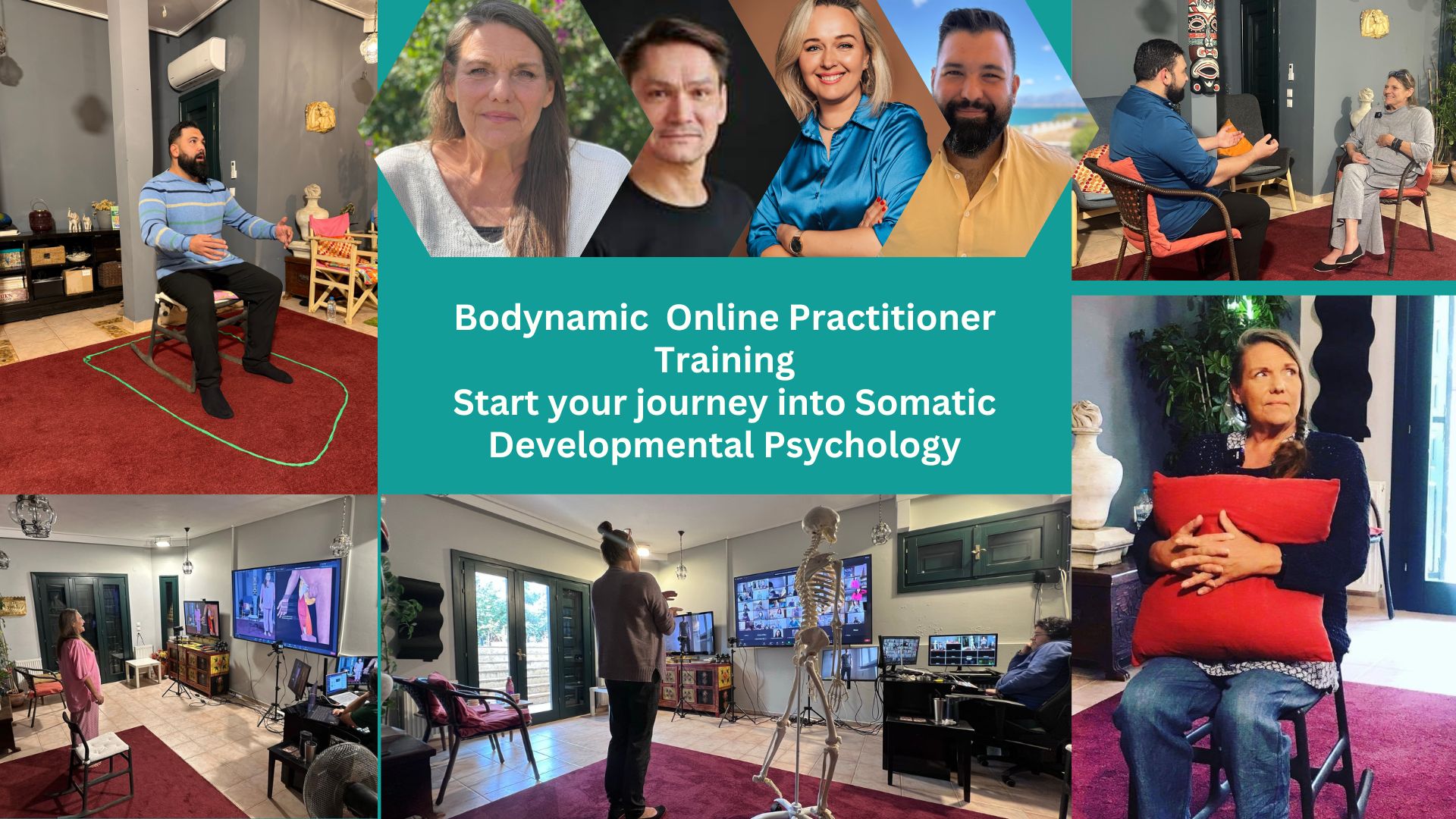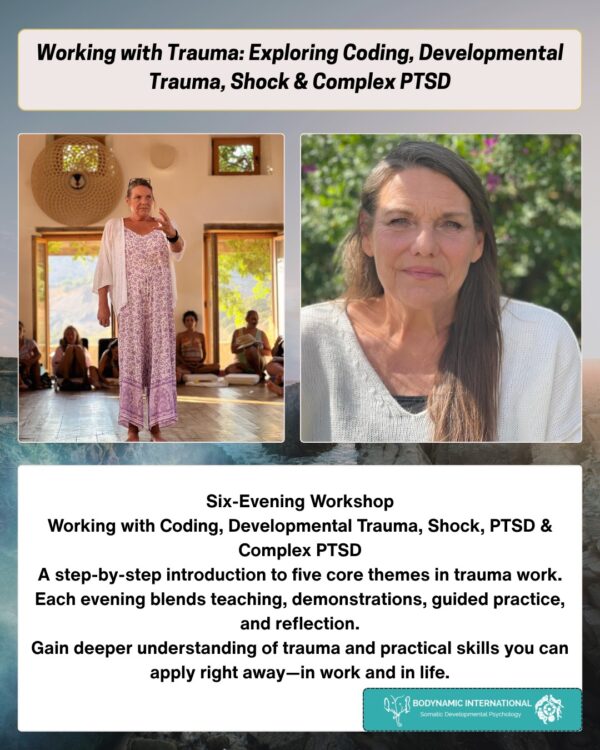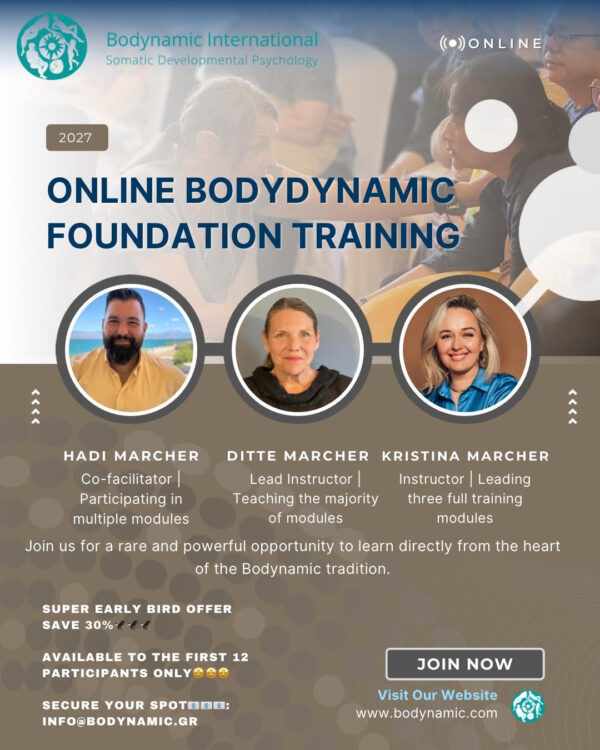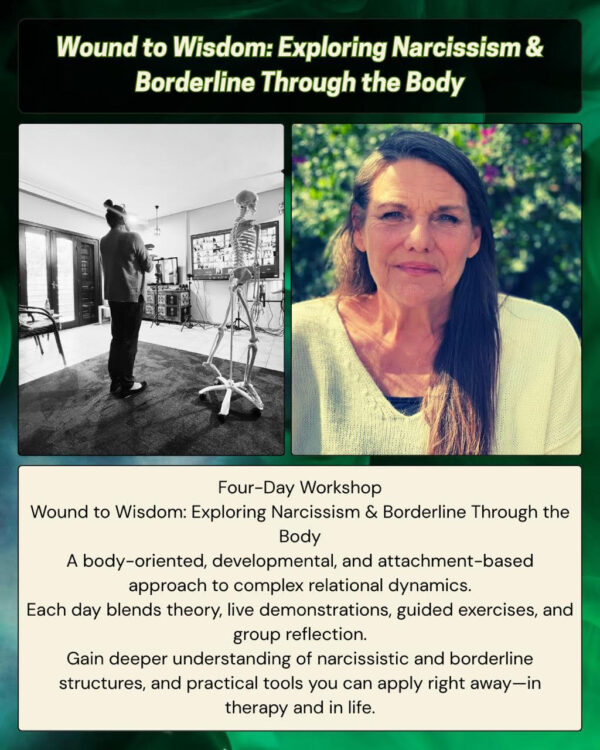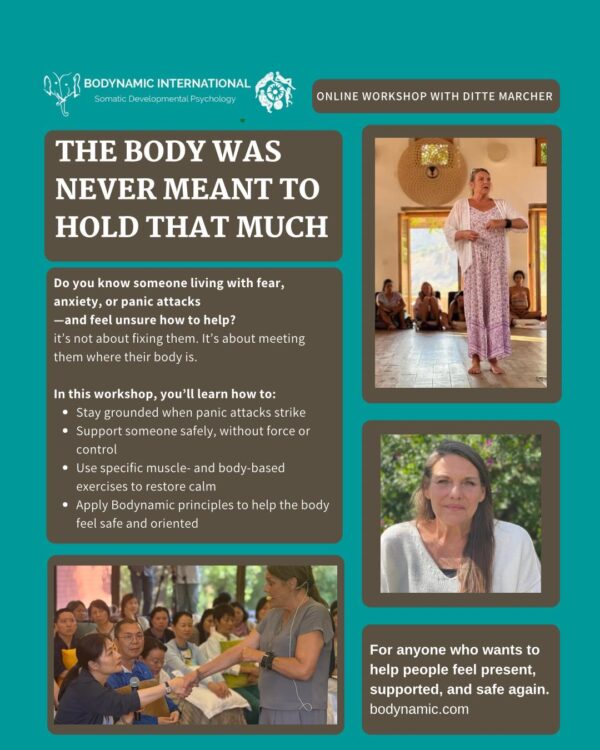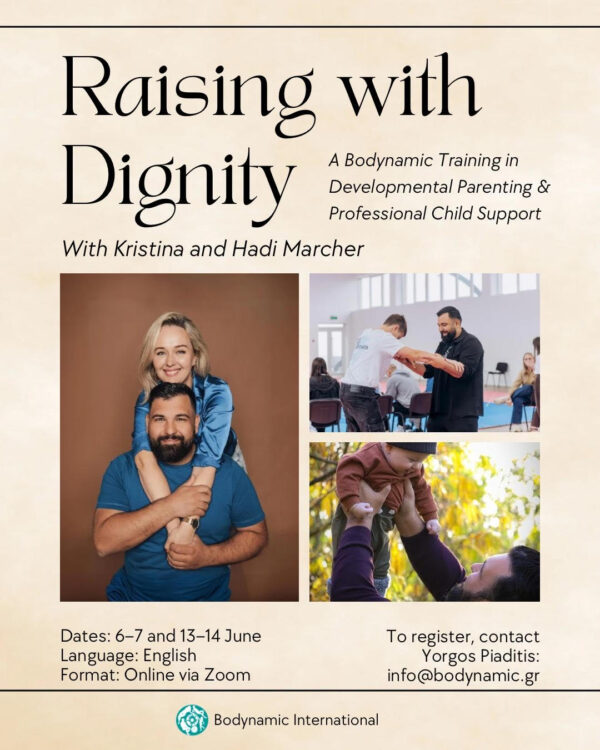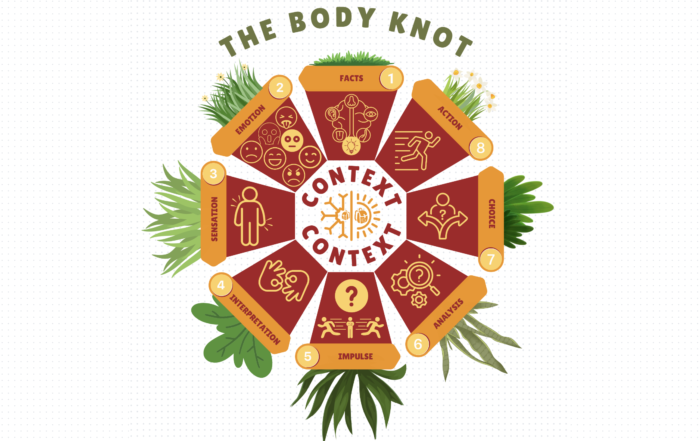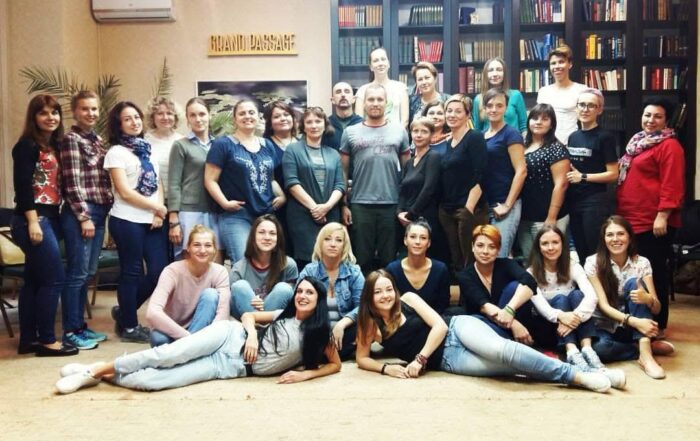The Bodynamic – Somatic Psychology and Analysis System – is a pioneering method of somatic developmental psychology and psychotherapy that integrates current research in the psychomotor development of children, cognitive and depth psychotherapy, brain research, and special emphasis on the quality of contact and on healthy relationship.

Mutual Connection & Dignity
The core belief of the Bodynamic System is that the human being is a social being motivated by a deep drive toward contact and connection with others, without losing pride and dignity, seeking what we term termed Mutual Connection.
Our understanding is that Dignity and Worthiness is built up in an individual through a deep sense of mutuality and compassionate affirmation. When core aspects and emotions of the self are not affirmed or supported in childhood, it leads to the creation of defenses which then become the source of relationship problems later in life.

Resource Building
Using the body as a resource we assist in building new psychological competencies in an individual that were missed during childhood development. Building these new resources often results in a new profound sense of self and being that was difficult to initially imagine.
21
Developmental Positions
7
Character Structures
5
Ego Aspects
11
Ego Functions
125
Muscles & Fascia mapped for their Psychological Abilities
The human body is integrated into the therapy through precise knowledge of the psychological function of each muscle, based on data obtained from 30 years of systematic studies on child development and the psychotherapy experience of adult clients.
Unique to the Bodynamic System is the focus on building resources as the foundations of inner security. A qualified therapist trained in this comprehensive discipline can determine which age-appropriate resources a client needs to learn, and can then proceed to work with specific movements to activate muscles within a developmental age level. When a person retrieves forgotten inner resources or develops new ones, she or he becomes capable of approaching the deeper layers of her traumatic experiences with success. Building resources and awareness also enables the person to move towards a much broader range of choices in life.
Training
Bodynamic Somatic Developmental Psychology training’s can be found in over twenty countries. Classes can last several days such as in workshop or up to three years such as in the Practitioner. Six different types of training’s are offered:
- Workshops
- Foundation
- Practitioner
- Shock Trauma
- Full Bodymap
- Reorienting Birth
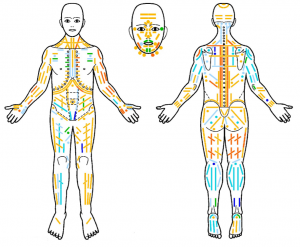
Online Bodynamic E-Learning
Take our first ecourse about differentiating and developing better skills around Boundaries and Energy Management. Taught by Ditte Marcher this ecourse is composed of a few introductory videos and thirteen exercise videos with guided instruction that you can do yourself in order to gain better skills at building boundaries and managing energy and emotions.
Take our second ecourse about Attachment & Character Structure. By combining the ego aspects, character structures and ego functions in the attachment theme it will be more clear on how to work with the attachment dynamic inside your self as well as with clients. Here you will learn theory and exercises that give options on how to support and work on attachment related challenges.
Viewable on pc’s, laptops, tablets and smart phones you can use our new online elearning platform and take the ecourse and practice wherever you go!
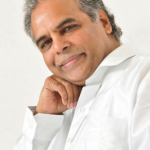
“Bodynamic Somatic Developmental Psychology is probably the most body-oriented and comprehensive developmental psychology and character structure model there is. Therefore, I highly recommend the Bodynamic foundation level training as a must to all those who are serious about being a body-oriented therapist.”
Raja Selvam, PhD, Senior Trainer of Somatic Experiencing, Developer of Integral Somatic Psychology™

“I believe that most schools of psychology and therapy have failed to understand fundamental ways humans use to make meaning about themselves in the world. Marcher, Fich, and their Bodynamic colleagues make a stunning step forward in overcoming this error by providing a fundamental developmental framework that helps us to understand the pathways humans move through and how to work effectively with our patients, young and old.”
Edward Tronick, PhD, Professor of Psychology, University of Massachusetts; Chief Faculty, Infant-Parent Mental Health Post-Graduate Certificate Program, University of Massachusetts; and Director, Child Development Unit, Children’s Hospital Boston, Harvard Medical School
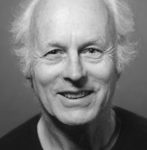
David Boadella, the noted Reichian scholar, has referred to Lisbeth Marcher as “the Scandinavian legacy of Wilhelm Reich”.
David Boadella, B.A., M.Ed., D.Sc.hon.
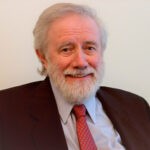
“Bodynamic Training is the premier program for developing knowledge and skill in Developmental Psychology. Offering grounded theory, and practical healing protocols with precision and heart, bringing the human spirit alive in a fuller embodied way—the precision of understanding with spirit, heart, and body. My training has made fundamental support for my life and psychotherapy practice.”
Dr. Ian Macnaughton, Ph.D., RCC
Psychotherapist
Bodynamic Analyst
Author Body, Breath, and Consciousness
Training Testimonials
Recent Articles
When the World Feels Divided
When a heated conversation about the Israel-Palestine conflict erupted in Thailand, Hadi didn't see enemies—he saw bodies bracing for safety. Using Bodynamic, a method that reads trauma through muscle tension and posture, he transformed a potentially explosive moment into an embrace between two men whose families have been at war for 70 years. What if understanding the body's defenses could help us meet division with dignity instead of fear?
The Bodyknot: A Comprehensive Guide to Communication, Therapy and Personal Growth
“The Bodyknot” is a Bodynamic-based, nine-element framework for “untying” misunderstandings and stuck patterns in communication by tracking experience from context/basic mood all the way to actions. It’s presented as a practical map for therapists as well as for managers and individuals who want clearer, more grounded conflict resolution and self-expression. The piece also highlights how different character structures tend to fixate on—or skip—specific stages, and it offers structured guidance and exercises to build more complete processing and relational clarity.
Reclaiming Wholeness: Ukrainian Veterans and the Somatic Revolution of Healing
Reclaiming Wholeness: Ukrainian Veterans and the Somatic Revolution of Healing By Hadi Bahlawan-Marcher, Kristina Vasiljevaite Marcher & Dominic Mathias Ukraine: When the Model Met the Moment In 2015, in response to a rising mental health [...]

